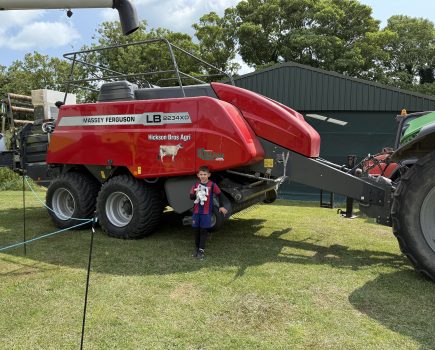Whatever one’s view of the importance of reducing agricultural pollution, British farmers must be impressed by the impact of their EU peers’ recent protests. In just a few weeks, by burning tyres on the autobahn, tipping dung on the steps of Hotels de Villes and clogging up the streets of Brussels with tractors, they’ve driven a metaphorical flail topper through Ursula von der Leyen’s plans to make EU agriculture carbon neutral by 2040.
Why, many are asking, don’t British farmers do the same? The first problem is that I’m not sure British farmers could ever agree on what they do actually want in terms of a post-Brexit farm policy. Personally, I always loathed the EU’s Basic Payment Scheme (BPS) as it seemed so unimaginative and wasteful in terms of reducing greenhouse gas emissions, encouraging wildlife or increasing food production, so I wouldn’t protest to save that.
Similarly, were someone to suggest I demonstrate to pressure the Government to abandon commitments to make British agriculture carbon neutral, I would also refuse. This issue must be challenged if our planet is to have any hope for the future, and agriculture must play its full part.
I would, though, turn out for a demo against the cheap beef and lamb due to flood markets in Great Britain once the catastrophic trade deal that ex-Trade Secretary Liz Truss signed with Australia kicks in.
But there are other things holding British farmers back from street demonstrations. For one thing we are unsure about how much public support we would get if we blocked roads in rush hour and piled farmyard manure outside government offices.
Also, we have learnt from bitter experience that past demonstrations don’t achieve much in terms of persuading British governments to change farm policy. In 2016, I was one of 5,000 farmers who marched through London to highlight the crisis in British agriculture, particularly in the dairy sector.
It was only after a humiliatingly long wait outside the Whitehall gates of Downing Street that our leader was eventually permitted to ‘deliver a letter’ to No 10, and the demo did nothing to stop the trend towards fewer but larger dairy herds, with an increasing number now ‘zero grazed’ in the name of cheap milk.
And then, of course, there is the natural reticence of British farmers to do something as radical as block a road. I think the problem is that too many large-scale farmers aspire to mimic the landed gentry socially and politically, making the idea of a street demonstration challenging.
Indeed, when I first attended farmer meetings in the 1980s the older generation would often turn up dressed like hereditary peers who’d taken a wrong turn from the House of Lords rather than downtrodden sod-busters. And I reckon you’re still more likely to see the younger generation of British farmers sporting a racing green Schöffel gilet than a gilet jaune.
Time, of course, will tell if I’m wrong and we see a mass of disruptive farmer demonstrations in Britain to protest sharply declining farm incomes. But if it does happen, I’ll eat my tweed breeches.







